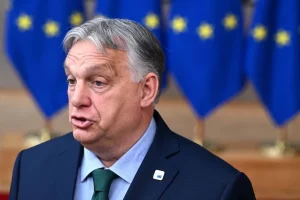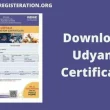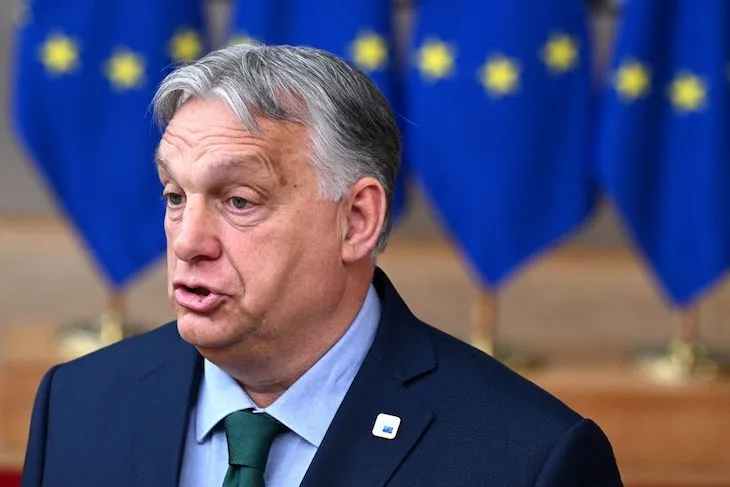In recent years, Viktor Orbán, the Prime Minister of Hungary, has gained international attention for his assertive and often controversial political stance. Orbán has articulated a vision for Europe’s future that diverges significantly from the mainstream European Union (EU) policies. His plan to make Europe competitive again focuses on economic nationalism, cultural conservatism, and a reassertion of national sovereignty. This article explores Orbán’s strategy, analyzes its potential impact, and compares it with other European models.
Background on Viktor Orbán

Viktor Orbán has been a dominant figure in Hungarian politics since he first became Prime Minister in 1998. His political career is marked by a shift from liberal democrat to a nationalist and conservative leader. Orbán’s Fidesz party has been in power since 2010, during which time he has implemented significant changes to Hungary’s political, economic, and social landscape. His governance style, often referred to as “illiberal democracy,” challenges the liberal democratic norms prevalent in the EU.
Key Components of Orbán’s Plan
Economic Nationalism
Orbán advocates for an economic model that prioritizes national interests over global integration. This approach includes protecting domestic industries, reducing dependence on foreign capital, and promoting Hungarian enterprises. Orbán argues that such measures are essential for ensuring national economic security and enhancing competitiveness.
Cultural Conservatism
A central tenet of Orbán’s vision is the preservation of national identity and cultural heritage. He believes that Europe’s competitiveness is linked to its cultural uniqueness and that protecting this heritage is crucial for maintaining social cohesion and stability. This involves strict immigration policies and promoting traditional values.
Reassertion of National Sovereignty
Orbán has been a vocal critic of what he sees as the overreach of EU institutions. He advocates for a model where national governments retain more control over their domestic affairs, arguing that this would lead to more effective and responsive governance. This includes resisting EU regulations that he perceives as undermining national sovereignty.
Analysis of Orbán’s Plan
Economic Viability
Orbán’s economic nationalism aims to insulate Hungary from global economic fluctuations. By supporting local industries and reducing reliance on foreign investments, Hungary seeks to create a more stable and self-sufficient economy. However, this approach can also limit growth potential and innovation, which are often driven by international trade and investment.
Social Impact
Orbán’s cultural conservatism emphasizes traditional values and national identity. While this can foster a strong sense of community and continuity, it can also lead to exclusionary practices and discrimination against minority groups. Strict immigration policies may hinder demographic and cultural diversity, which are vital for a dynamic and innovative society.
Political Implications
The reassertion of national sovereignty challenges the EU’s integrationist agenda. Orbán’s stance encourages other member states to prioritize national interests, potentially leading to fragmentation within the union. This could weaken the EU’s collective bargaining power on the global stage and complicate collaborative efforts on issues like climate change and security.
Comparative Analysis
Orbán’s Model vs. Mainstream EU Policies
| Aspect | Orbán’s Model | Mainstream EU Policies |
|---|---|---|
| Economic Strategy | Economic nationalism, protectionism | Free market, economic integration |
| Cultural Approach | Cultural conservatism, strict immigration | Multiculturalism, open immigration |
| Governance | National sovereignty, less EU influence | Supranational governance, strong EU institutions |
| Social Policies | Traditional values, national identity | Progressive values, social inclusivity |
Pros and Cons
Pros of Orbán’s Plan
- Economic Stability: By focusing on domestic industries, Hungary aims to achieve economic stability and resilience.
- Cultural Cohesion: Emphasizing national identity can strengthen social cohesion and reduce internal conflicts.
- Political Autonomy: Greater national sovereignty allows for tailored policies that reflect the specific needs of the country.
Cons of Orbán’s Plan
- Economic Isolation: Reduced integration can limit economic growth and innovation.
- Social Exclusion: Strict immigration policies and cultural conservatism may marginalize minority groups.
- EU Fragmentation: Orbán’s approach can lead to tensions and divisions within the EU, weakening its overall effectiveness.
Case Studies
Germany’s Inclusive Model
Germany’s approach to competitiveness focuses on open markets, integration, and multiculturalism. This model has led to significant economic growth, innovation, and social diversity. However, it also faces challenges like social integration of immigrants and economic disparities.
Poland’s Hybrid Model
Poland combines aspects of economic nationalism with some degree of integration into the EU. This hybrid approach has allowed Poland to experience economic growth while maintaining a degree of national control. However, it faces criticism for its political and judicial reforms that challenge EU norms.
Analysis Table
| Component | Description | Potential Impact |
|---|---|---|
| Economic Nationalism | Prioritizing national interests, protecting domestic industries | Economic stability, potential growth limitations |
| Cultural Conservatism | Emphasizing national identity, traditional values | Social cohesion, risk of exclusion |
| National Sovereignty | Resisting EU overreach, enhancing national control | Political autonomy, potential EU fragmentation |
Comparative Table
| Aspect | Orbán’s Model | Mainstream EU Policies |
|---|---|---|
| Economic Strategy | Economic nationalism, protectionism | Free market, economic integration |
| Cultural Approach | Cultural conservatism, strict immigration | Multiculturalism, open immigration |
| Governance | National sovereignty, less EU influence | Supranational governance, strong EU institutions |
| Social Policies | Traditional values, national identity | Progressive values, social inclusivity |
Conclusion
Viktor Orbán’s plan to make Europe competitive again presents a radical departure from the mainstream EU policies. While it promises economic stability, cultural cohesion, and political autonomy, it also poses risks of economic isolation, social exclusion, and EU fragmentation. The success of Orbán’s model largely depends on balancing national interests with the benefits of European integration. As Europe faces complex global challenges, finding a middle ground that harnesses the strengths of both national and supranational strategies may be crucial for its future competitiveness.












